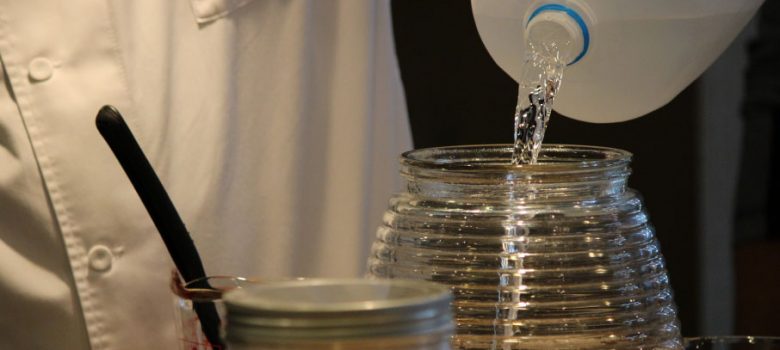It’s not news that sugary sodas and juices are bad for your health, and many adults have made an effort to replace their customary Coke or Pepsi with healthier options like green tea, lemon water, or the increasingly popular fermented tea known as kombucha. However, it’s important to realize the effect that even nutritious drinks like kombucha can have on teeth so that you can take the appropriate steps to prevent any damage before it occurs. If you regularly drink kombucha or are interested in trying it, here’s what you need to know about what it is and how it affects your teeth:
What is Kombucha?
Kombucha is a fermented, slightly bubbly black or green tea that is purported to improve immunity, boost energy levels, and aid in proper digestion, among many other claims. The drink is bottled and sold commercially and is widely available in a variety of flavors and brands, but it can also be made relatively simply at home through a fermentation process. It has gained popularity among those who advocate including probiotics in the diet as it provides the body with the “good bacteria” that live in the gut and aid in digestion and overall health.
What Does It Do to Teeth?
One thing that many people don’t realize about kombucha is that it is very acidic, even more so than regular green or black tea. In fact, it is nearly as acidic as Coke or Pepsi — infamous culprits in the causes of tooth decay. Consuming anything acidic contributes to enamel erosion and creates an environment in the mouth where cavity-causing bacteria thrive. If you sip kombucha throughout the day as though it were water, you create a consistently acidic environment that can lead to bad breath, weakened enamel, and the increased likelihood of cavities. Add to this the fact that many commercially sold brands of kombucha are sweetened with sugars, and you have a beverage that can be just as harmful to your teeth as regular soda.
How Do You Minimize Its Effects on Your Teeth?
If you enjoy drinking kombucha and want to continue to reap the health benefits associated with it, the good news is that you can minimize the damage it causes to your teeth while still drinking it regularly:
- Opt for unsweetened versions. While it’s tempting to indulge in one of the many flavored kombucha drinks available, it’s likely that they contain added sugars that you and your teeth are better off without. Instead, choose unsweetened brands or ferment your own at home to ensure you aren’t exposing your teeth to excess sugar.
- Drink it all at once. Rather than sipping kombucha throughout the day and prolonging the acidity levels in your mouth, drink your serving all at once. If you are thirsty throughout the day, there is no better option than sipping plain water.
- Rinse with water. As with any acidic beverage, it’s a good idea to rinse your mouth out with water afterwards to wash away some of the acid and residual sugars.
- Brush your teeth. It’s always wise to brush after any meal or beverage that isn’t plain water, but bear in mind that it’s ideal to wait about half an hour before doing so. If you brush immediately afterwards, you can actually spread some of the residue around your mouth so the best technique is to rinse with water immediately afterwards and then wait about 30 minutes for some of the residue to dissolve before brushing.
- Visit the dentist regularly. Wildflower Dental & Orthodontics in Frisco and Prosper offers routine & preventative dental care that will leave your mouth healthy and happy! Visit our dental services page to learn more.
We're here to help you maintain great oral health!
Schedule an Appointment




